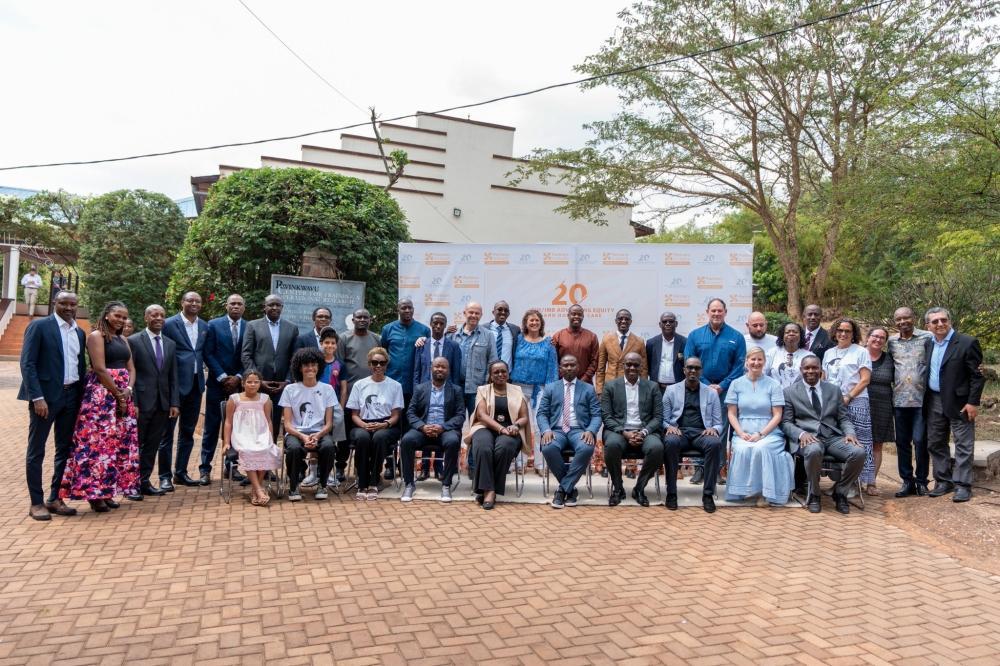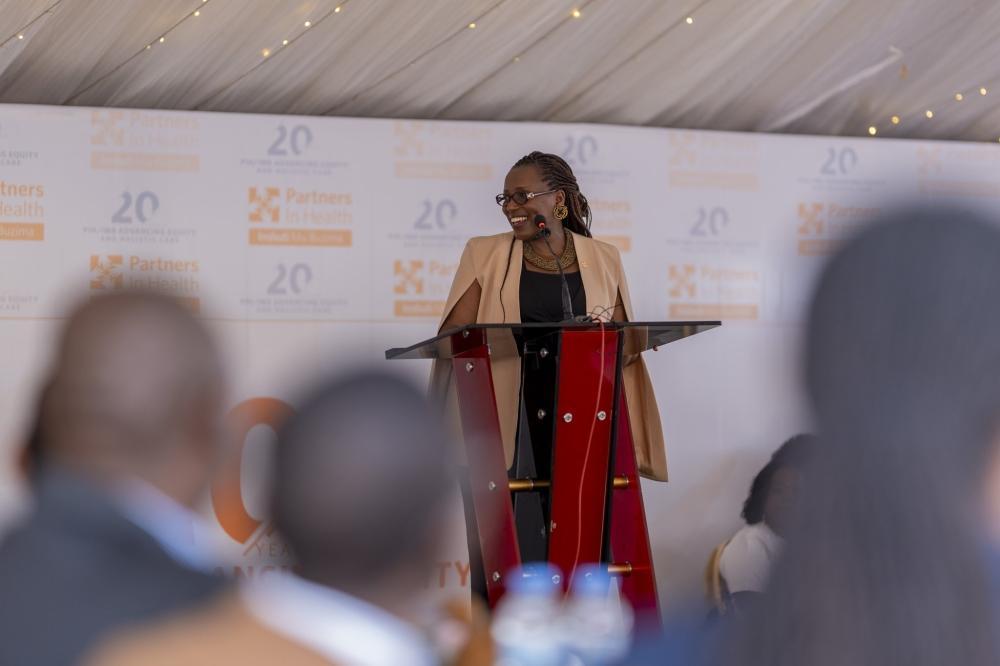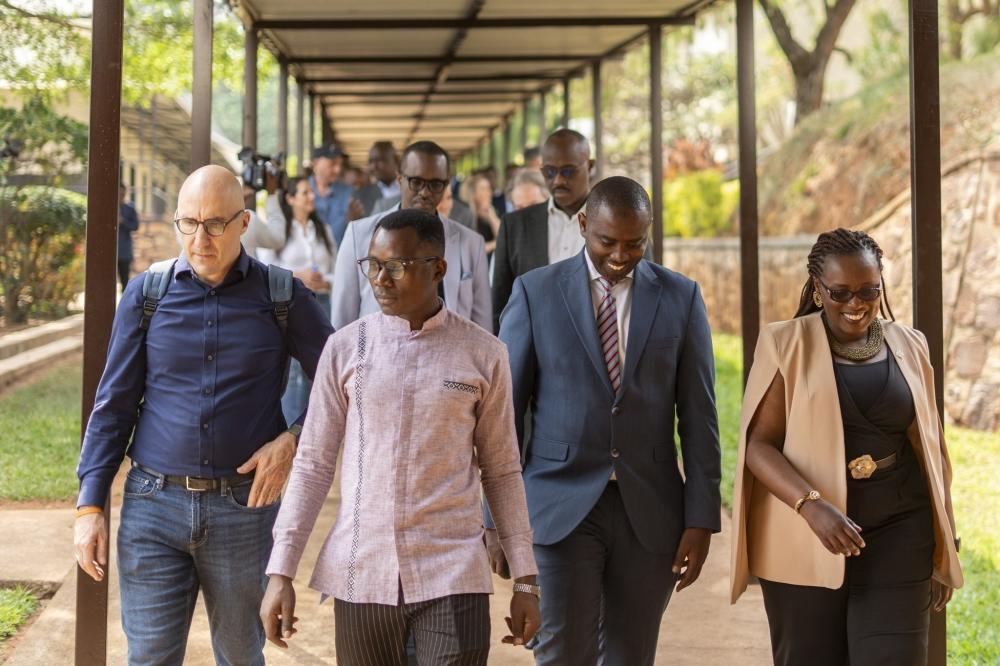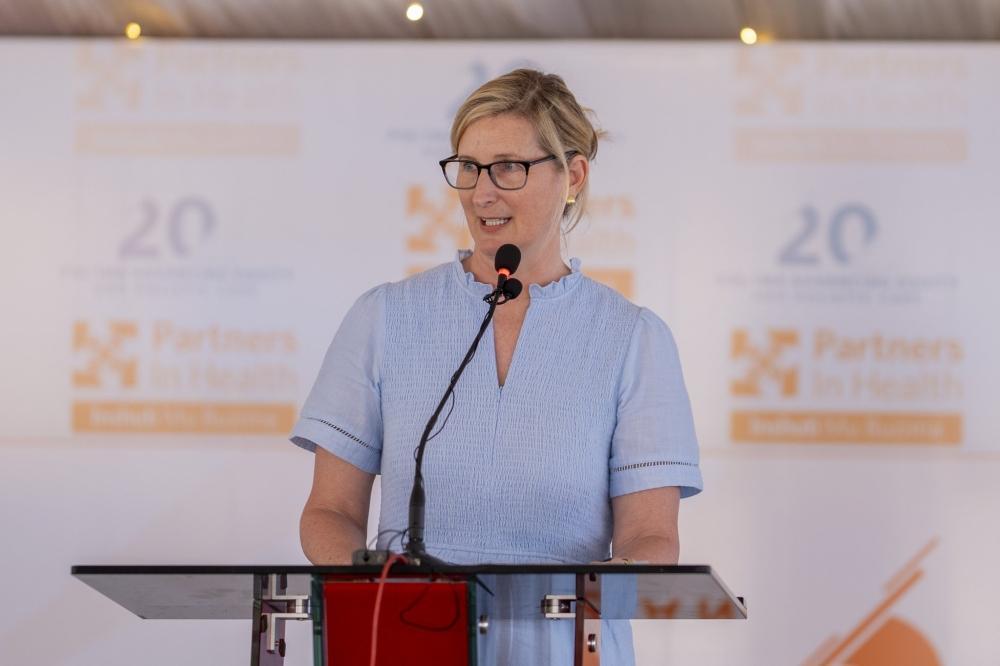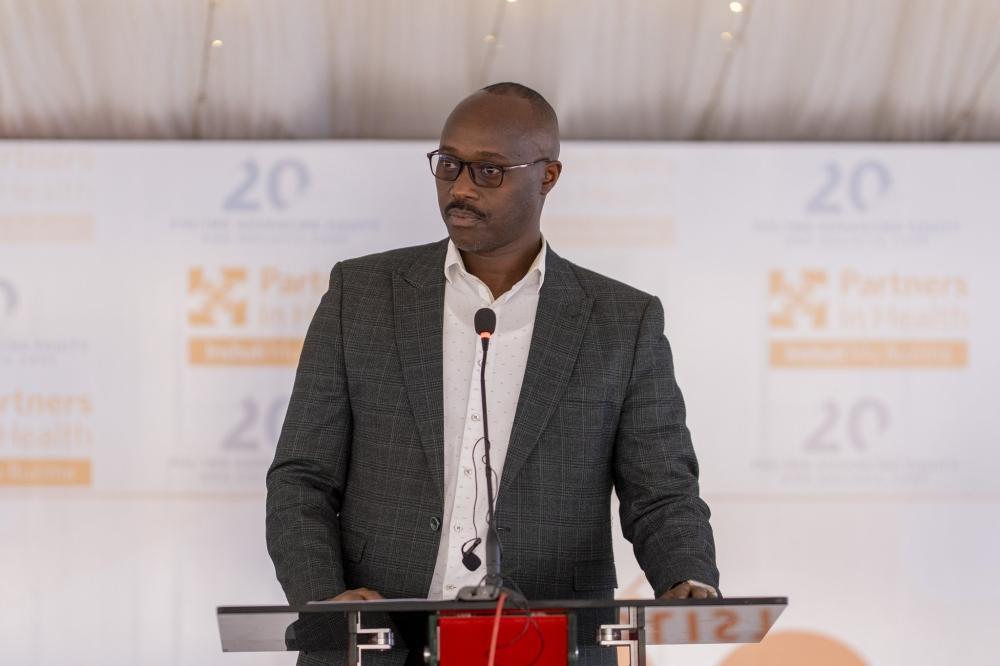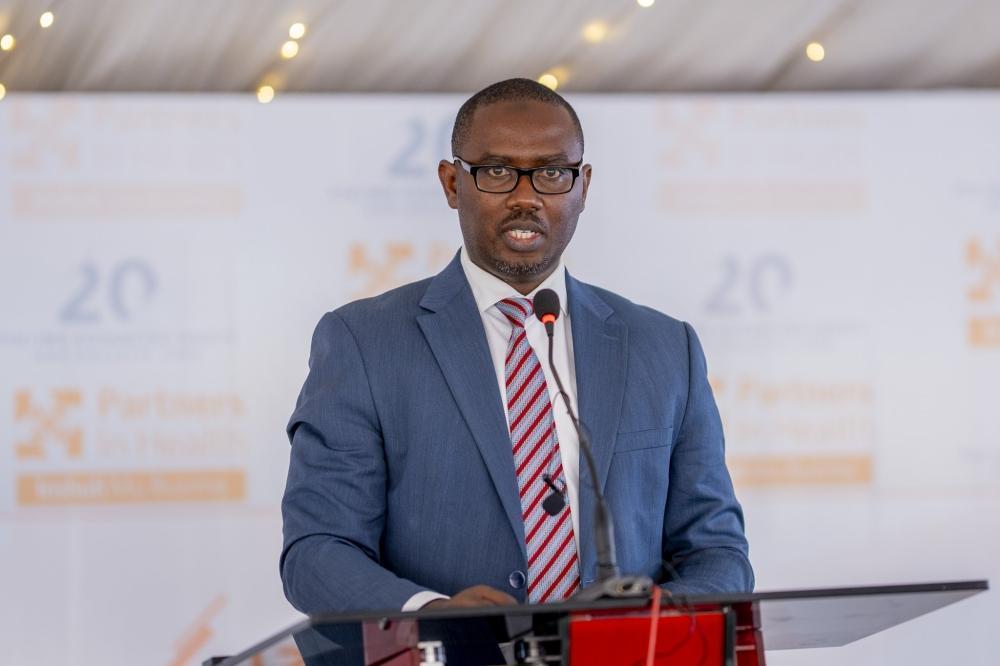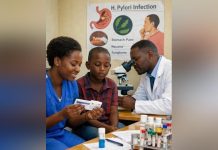Africa-Press – Rwanda. Butaro Hospital in Burera District will soon become a full teaching institution, according to Partners In Health (PIH), the organisation that manages the health facility, which specialises in cancer treatment.
This was announced by Nadine Karema, Executive Director of PIH Rwanda, during a ceremony held on July 19 at the organisation’s headquarters in Kayonza District, marking 20 years of PIH’s work in Rwanda.
Nadine Karema, Executive Director of PIH Rwanda
Partners In Health is a global organisation co-founded by the late Dr Paul Farmer, an advocate of universal healthcare, who also founded the University of Global Health Equity (UGHE), located in Burera District. The organisation provides support to Rwinkwavu, Kirehe, and Butaro level 2 hospitals, including their centres.
The Butaro District Hospital and the Butaro Cancer Center of Excellence treat more than 4,000 cancer patients annually, according to the management.
“We’ve renovated maternity wards, expanded neonatal units, including one of the largest in Rwanda, built Kirehe Hospital, and upgraded Butaro Hospital to a level 2 teaching hospital,” Karema said.
“Soon, with UGHE’s partnership, Butaro will become a full teaching hospital. We want radiotherapy cancer treatment to return to Butaro Hospital and to introduce more advanced imaging devices.”
PIH has expanded mental health and neonatal services, introduced digital health innovations, and collaborated in protecting staff during COVID-19 and Marburg outbreaks. Its programmes in Rwanda have trained health workers, including over 5,900 community health workers.
Currently, more than 26,000 people receive care for non-communicable diseases, over 18,000 access mental health services, and 5,000 children benefit from the Paediatric Development Clinic, she said.
Karema outlined their approach, which centres on the “5 S’s”: staff, stuff, space, systems, and social support.
“These elements have enabled us to deliver better healthcare and build a stronger health system. We started in Kayonza, expanded to Kirehe and Burera, and leveraged those experiences to inform national policies,” she said.
She noted that critical investments in human resources and infrastructure, including an oxygen plant in Kirehe serving over 800,000 people, improved patient tracking, and enhanced neonatal care.
Leslie King, newly appointed Chair of the Global PIH Board of Directors
“At the core of this work is health system strengthening, supported by advanced labs, biomedicine, quality improvement, antimicrobial stewardship, and infection surveillance,” said Leslie King, newly appointed Chair of the Global PIH Board of Directors.
“We see evolving global funding as an opportunity to align future health financing with social medicine principles,” King said.
Prudence Rubingisa, Governor of Eastern Province
Prudence Rubingisa, Governor of Eastern Province, commended PIH’s compassionate and quality healthcare programmes, describing the Butaro Hospital as a national model, serving 260 people directly and reaching up to one million in surrounding communities.
“During our visit to the maternity ward and other areas, we were impressed by the quality of care. Only one maternal death occurred during childbirth in the past two years, which underscores the impact of their services,” Rubingisa said.
“We plan to work with the Ministry of Health to identify ways to expand this high-quality care to more people.”
Muhamed Semakula, Permanent Secretary in the Ministry of Health
Muhamed Semakula, Permanent Secretary in the Ministry of Health, emphasised the government’s commitment to working with partners to expand universal health coverage.
“First, we seek collaboration to help Butaro, Rwinkwavu, and Kirehe hospitals become full level 2 teaching hospitals, training residents and providing specialised care,” Semakula said.
“Second, we are committed to developing Butaro Cancer Center into a comprehensive hub offering a full spectrum of cancer diagnosis, treatment, and care.”
The official noted that resource mobilisation and securing strategic financing are crucial for sustained progress and long-term support.
For More News And Analysis About Rwanda Follow Africa-Press

